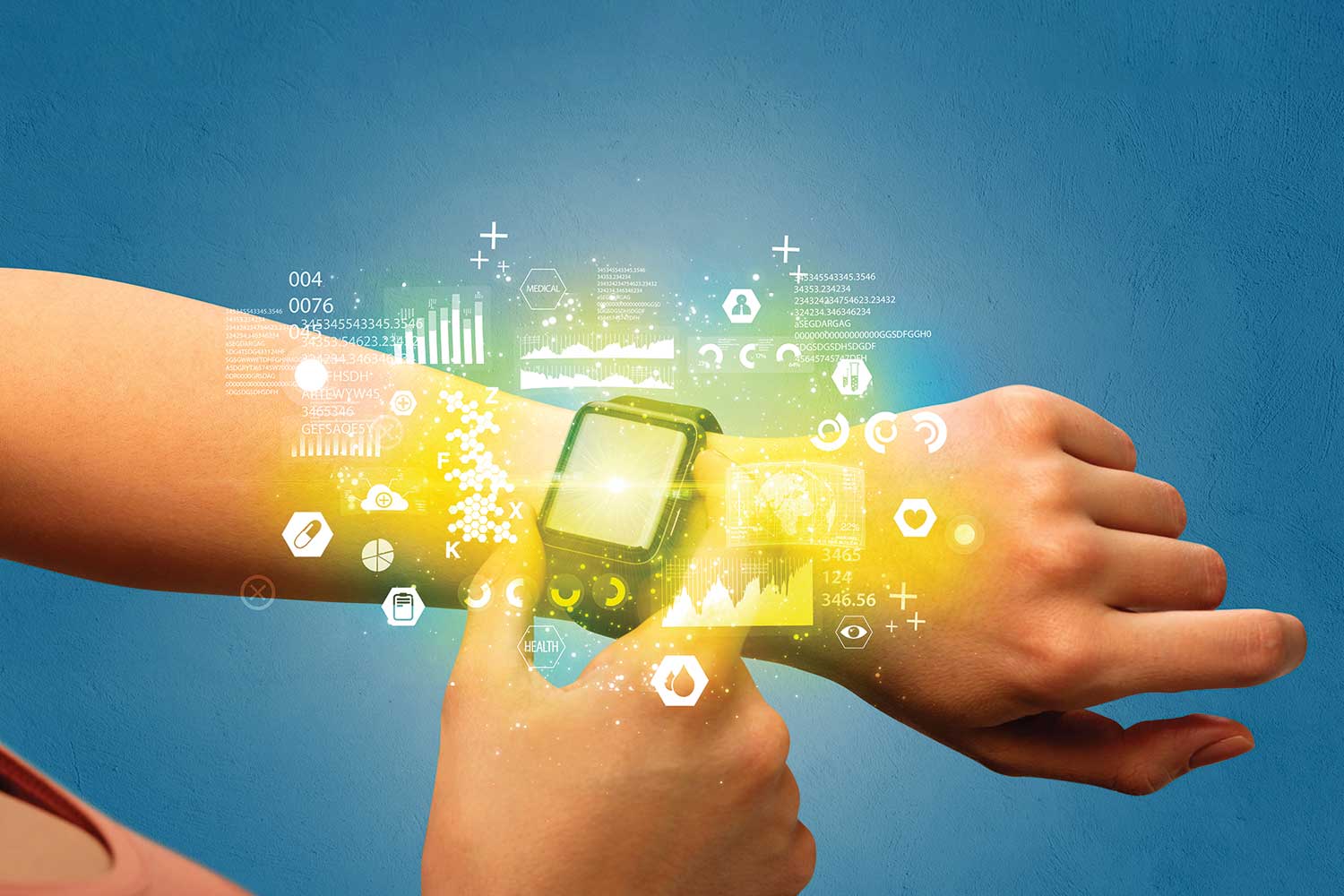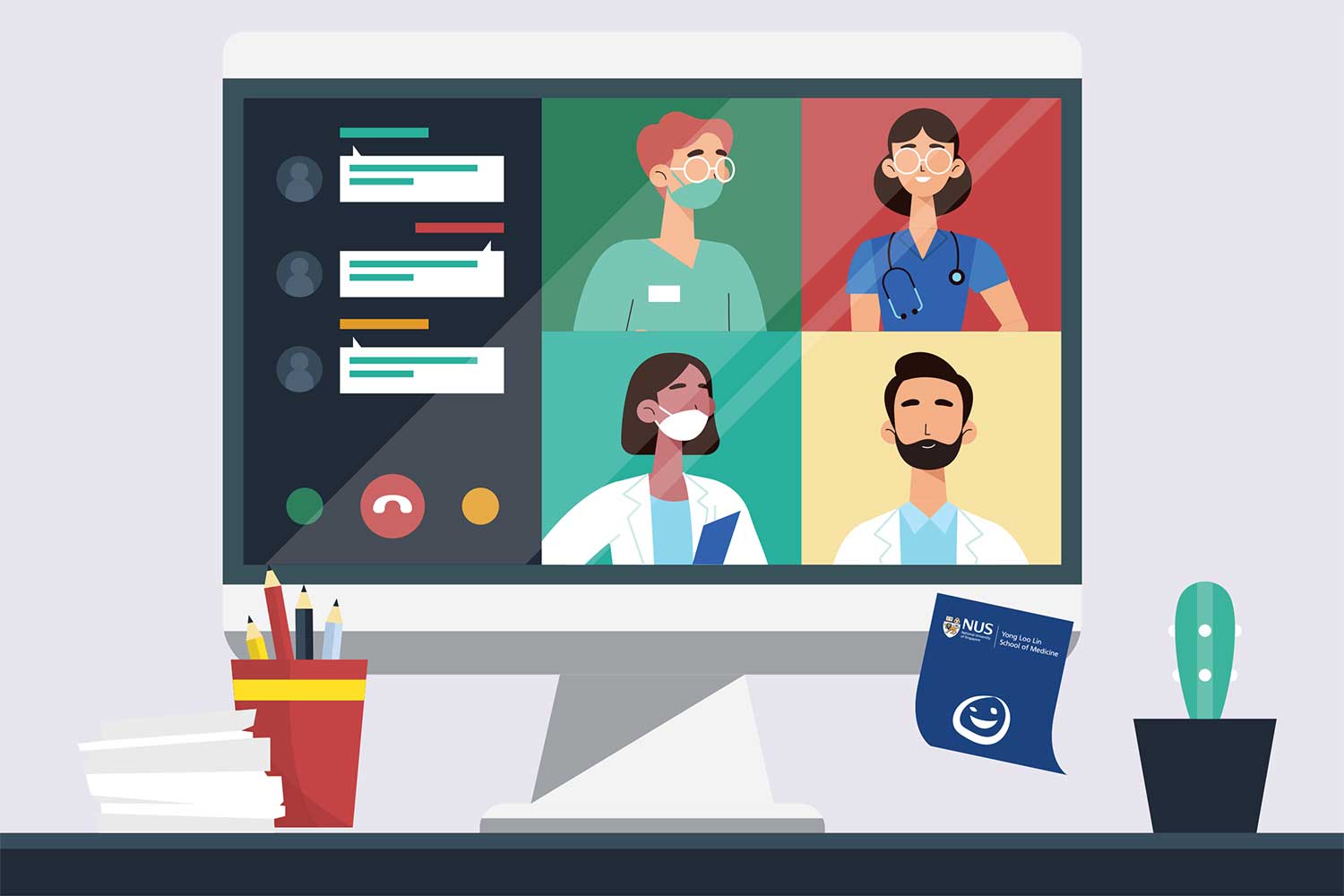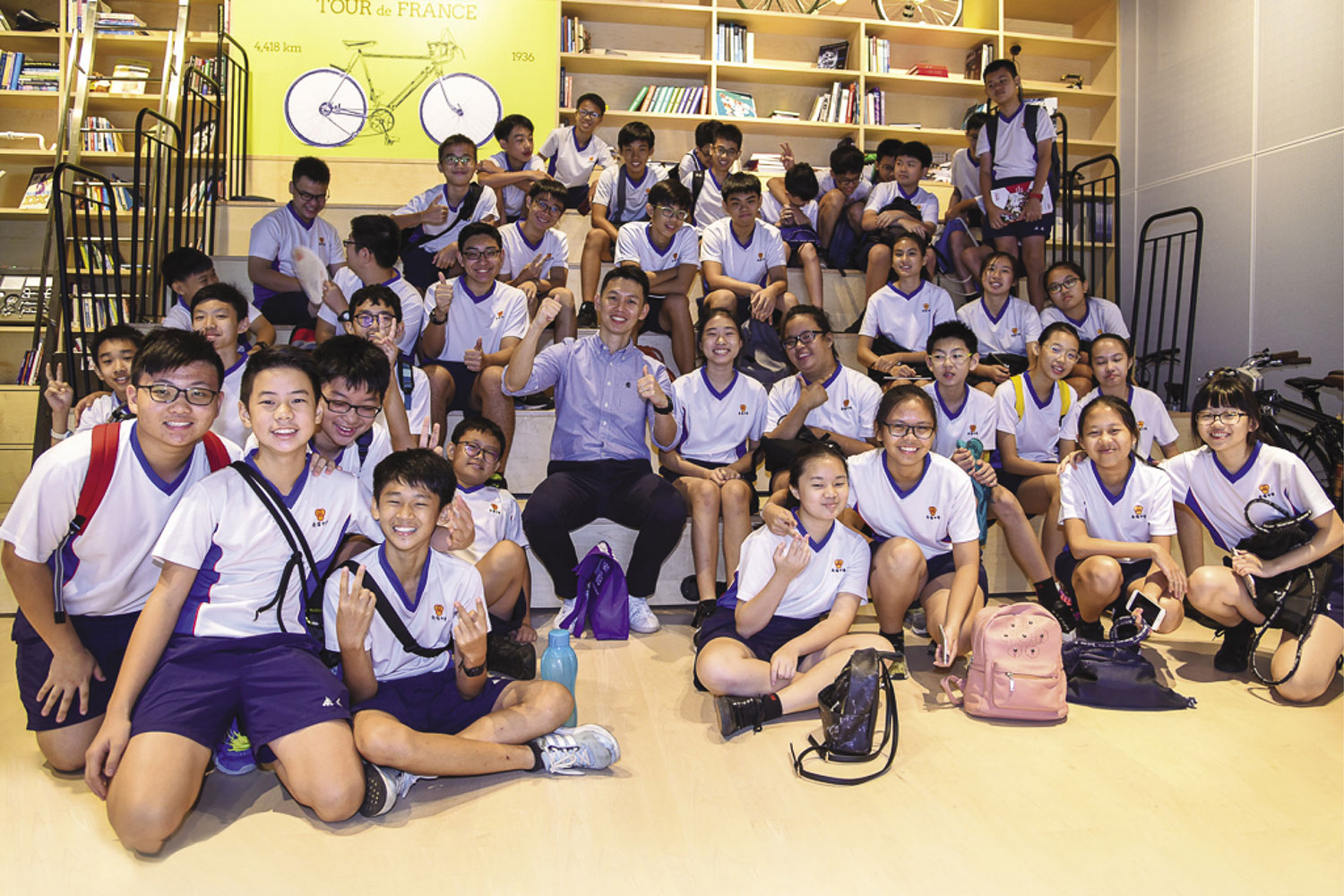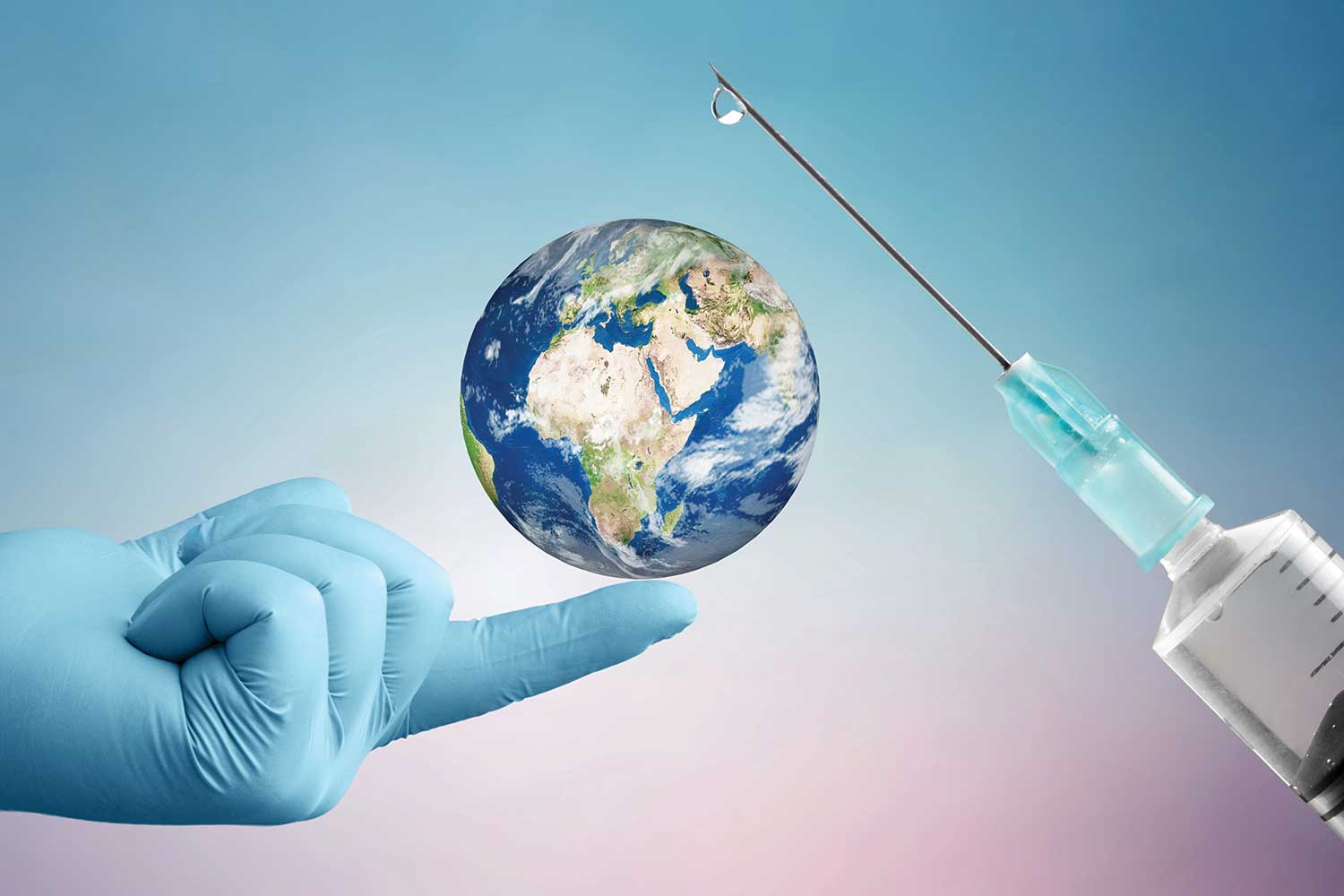
Issue 38 / May 2021
Insights
MedTech Will Change Our Lives.
Are We Ready?

Do you think our friends and family would like it if the temperature detector at entrances of shopping malls today also flashes red and gives a beep if our blood sugar is high, or if it detects elevated blood pressure?
iabetes, hypertension, lipids, or DHL, is a big issue for any well-developed society. It is one in which food is in high abundance, and present in quality that ranges from good to irresistibly good. It is also one in which a sedentary way of life is easy to slide into. Our forefathers have had to work hard at making a living, and much of that entailed labouring outdoors, or walking for miles to get the work done.
Today, we still have to work hard to make a living (often indoors), but we also now have to work hard at keeping fit and healthy. But there are always those who will not want to hear that they are not doing well at managing their own health. In recent weeks and months, the School’s Engineering in Medicine events showcased much amazing technology: detectors and sensors that can monitor coughs, electrolytes, bugs, etc. If it is a quantifiable entity, we can (and will) find a way to pick it up.
MedTech
Examples
![]()
Oura Ring monitors
our sleep-wake cycles
Fitbit counts
our steps
We are hunting for the biomarkers to pick out conditions before they manifest or before severe disease sets in, when complications become harder to reverse. That is the objective of research in stratified medicine, being able to identify the at-risk group of people in any population, and channel resources to those targeted groups. But is the population a willing partner in our quest?
I am still seeing patients who are not coming back to the clinic after being told that their hypertension needs treatment. A taxi driver, who drove a colleague and I, said he would not come to the hospital because he was convinced it would be a one-way road to the end. A running topic of amusement is our typical Asian mother (or grandmother) who wants her son or daughter to study medicine, but refuses to see a doctor when she is ill. This may also apply to the father or grandfather, of course.
But the disconnect is there. There is a lot of ongoing public health effort. Our health education drive is at an all-time high. Very advanced and exciting technology are marching into our society presently. We learnt this week that Verve Therapeutics has succeeded at their non-human primate trial in which a CRISPR-enabled deletion of the PCSK9 gene looks like it will result in lifelong ~50% reduction of LDL-cholesterol1. They expect to start first-in-man studies by 2022.
A “once and for all” therapy to lower cholesterol, which is what CRISPR offers, means that this could be a public health opportunity to knock back heart attacks like no other preventative approach has ever achieved.
We know this is possible because smallpox was successfully eradicated through public health measures, and screening for Thalassaemia has reduced major cases in Singapore significantly2.
Epidemic infections or fatal genetic diseases are not the same as metabolic diseases. It is naive to link them by analogy. The latter involve lifestyle choices, but all of these conditions cause severe mortality and morbidity. Barring the differences in technology (vaccines or genetic testing versus CRISPR), what can be achieved for a population is significant and potentially game-changing. Our campus, and Singapore, is abuzz with new medical technology (MedTech), AI and devices that will change how we can prevent or manage diseases. Exciting near-future technological innovations are home monitors involving smartphone apps. These will help us to keep in touch with patients or offer advice on lifestyle choices. A part of the population is very excited to make this work.
Some of us have already bought the Oura Ring to monitor our sleep-wake cycles3, or a Fitbit to count our steps. We are also the ones who want to be in touch with our doctors to hear about our health or that our effort with managing our health is paying off. We will be the ones who will step quickly and excitedly into that queue at the shopping mall for the temperature-taking device that also tells us how our blood sugar or blood pressure are doing. Do we need to devise means by which to bring the stragglers and doubters along? A convergence of technologies that encourages and informs would be most helpful to those of us wanting to help improve the health of our nation.
-
https://www.vervetx.com/press-releases/verve-therapeutics-presents-new-data-in-non-human-primates-validating-gene-editing-as-a-treatment-approach-for-coronary-heart-disease-at-the-isscr-2020-virtual-annual-meeting/.
-
https://www.slideshare.net/Thalassaemia_Intl_Fed/singapore-11884371.
-
https://ouraring.com/.




